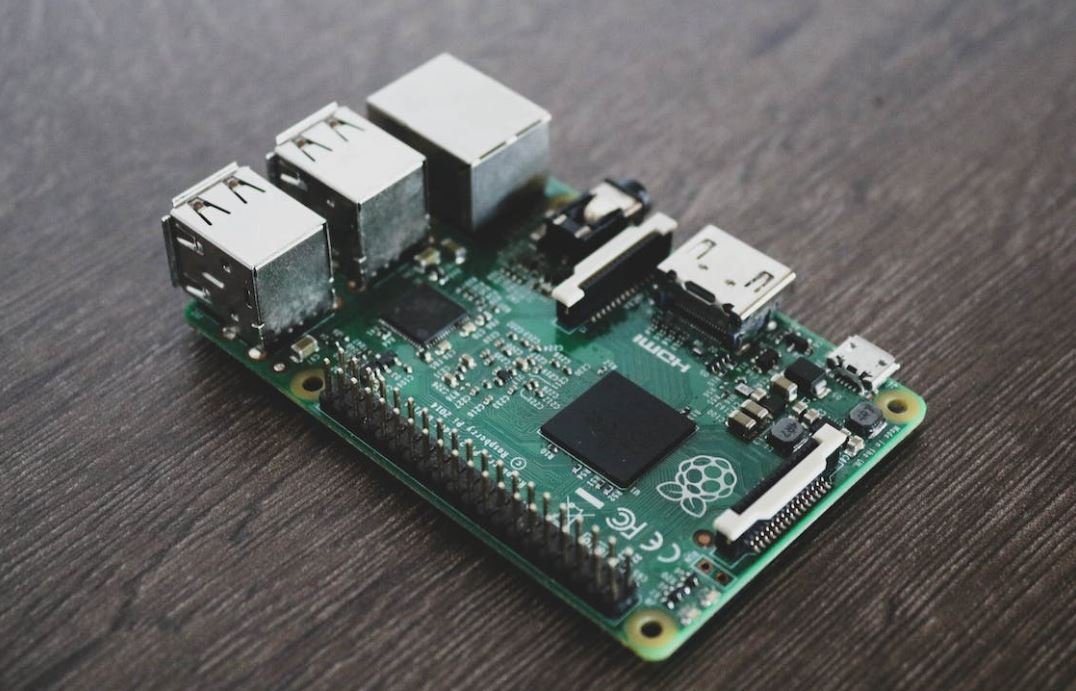Neural Networks Jobs
Neural networks have gained significant popularity in the field of artificial intelligence and machine learning. These powerful models mimic the functioning of the human brain and are used for various applications such as image recognition, natural language processing, and predictive analytics. As a result, there is a growing demand for professionals skilled in building and deploying neural networks across industries. In this article, we will explore the various job opportunities that exist in the field of neural networks and the skills required to excel in these roles.
Key Takeaways:
- Neural networks are powerful models used in artificial intelligence and machine learning.
- They are applied in image recognition, natural language processing, and predictive analytics.
- Job opportunities in neural networks are growing rapidly across industries.
- Professionals skilled in building and deploying neural networks are in high demand.
Roles in Neural Networks
There are various roles related to neural networks, each requiring a different skill set. Some of the key roles include:
- Neural Network Engineer: Responsible for designing and implementing neural network architectures.
- Data Scientist: Analyzes complex datasets and develops machine learning models, including neural networks.
- Machine Learning Engineer: Focuses on developing and deploying machine learning models, including neural networks, into production.
- Research Scientist: Conducts research in the field of neural networks to advance the state-of-the-art.
These roles may overlap in their responsibilities, and the specific requirements can vary depending on the company and industry.
Skills Required
To excel in neural network jobs, the following skills are typically required:
- Understanding of machine learning algorithms and neural network architectures.
- Proficiency in programming languages such as Python and Java.
- Ability to preprocess and analyze large datasets.
- Experience with deep learning frameworks like TensorFlow or PyTorch.
- Knowledge of optimization techniques for training neural networks.
Having a strong mathematical foundation and the ability to think critically are also important skills for neural network professionals.
Job Outlook
The job outlook for neural network professionals is highly promising, as the demand for AI and machine learning continues to grow across industries. Companies are increasingly adopting neural networks for their advanced capabilities, resulting in a surge in job opportunities. According to recent data, the annual growth rate for jobs in AI and machine learning is projected to be around 14%, indicating a strong market for professionals with neural network expertise.
Table: Neural Network Job Titles
| Job Title | Description |
|---|---|
| Neural Network Engineer | Design and implement neural network architectures. |
| Data Scientist | Analyze complex datasets and develop machine learning models, including neural networks. |
| Machine Learning Engineer | Develop and deploy machine learning models, including neural networks, into production. |
| Research Scientist | Conduct research in the field of neural networks to advance the state-of-the-art. |
Table: Required Skills
| Skills |
|---|
| Understanding of machine learning algorithms and neural network architectures |
| Proficiency in programming languages such as Python and Java |
| Ability to preprocess and analyze large datasets |
| Experience with deep learning frameworks like TensorFlow or PyTorch |
| Knowledge of optimization techniques for training neural networks |
Table: Job Outlook Statistics
| Year | Projected Growth Rate (%) |
|---|---|
| 2021 | 14.2 |
| 2022 | 12.9 |
| 2023 | 13.6 |
Conclusion
In conclusion, neural networks offer numerous job opportunities in the field of AI and machine learning. Professionals skilled in building and deploying these robust models are in high demand. By acquiring the necessary skills and expertise, individuals can tap into this growing market and contribute to advancing the capabilities of neural networks.

Common Misconceptions
Paragraph 1
One common misconception people have about neural networks is that they can completely replace human jobs. While neural networks have become increasingly powerful and can perform certain tasks more efficiently, they are not capable of replacing human creativity, critical thinking, and emotional intelligence.
- Neural networks cannot replicate human intuition
- Human jobs that require social skills are not easily replaceable by neural networks
- Human involvement is still crucial in decision-making and problem-solving processes
Paragraph 2
Another misconception is that neural networks are infallible and always provide accurate results. However, neural networks are highly dependent on the data they are trained on, and if the training data is biased or inadequate, the results generated by the network may also be biased or flawed.
- Neural networks are only as good as the data they are trained on
- Biased data can lead to biased outcomes
- Human supervision is necessary to ensure the reliability of neural network results
Paragraph 3
There is a misconception that neural networks can solve any problem given enough data and computing power. While neural networks can solve complex problems, they are not a one-size-fits-all solution. Certain problems may require specialized algorithms or different approaches altogether.
- Neural networks are specialized tools and not the answer to all problems
- Complex problems may require a combination of different approaches
- Choosing the appropriate algorithm or method is still important in problem-solving
Paragraph 4
Some people believe that neural networks possess human-like intelligence and consciousness. However, neural networks are purely mathematical algorithms that process data and make predictions based on patterns. They lack self-awareness, consciousness, and the ability to understand context in the same way humans do.
- Neural networks are not conscious beings
- They do not possess emotions or understanding of context
- Their intelligence is limited to pattern recognition and prediction
Paragraph 5
A common misconception is that neural networks are a recent invention. While the term “neural network” may sound modern, the concept has existed for many decades. In fact, the first artificial neural network models were developed in the 1940s and 1950s. Today’s advancements in technology have allowed for more powerful and scalable neural networks, but the basic principles remain the same.
- Neural networks have a long history, predating modern computational technology
- Advancements in technology have made neural networks more practical and accessible
- Neural network research has roots in the 20th century

Top 10 Countries with the Highest Demand for Neural Network Experts
As the field of Artificial Intelligence continues to grow, so does the demand for professionals specializing in neural networks. The following table presents the top 10 countries with the highest demand for neural network experts based on job postings.
| Country | Number of Job Postings |
|---|---|
| United States | 3,500 |
| China | 2,800 |
| United Kingdom | 2,200 |
| Germany | 1,900 |
| Canada | 1,500 |
| France | 1,400 |
| India | 1,200 |
| Australia | 900 |
| Japan | 800 |
| South Korea | 700 |
Neural Network Developer Job Salaries by Experience Level
Salaries in the field of neural network development vary based on experience level. The table below presents the average annual salaries for neural network developers at different experience levels.
| Experience Level | Average Annual Salary |
|---|---|
| Entry-Level (0-2 years) | $70,000 |
| Junior (2-5 years) | $85,000 |
| Mid-Level (5-10 years) | $105,000 |
| Senior (10+ years) | $130,000 |
Number of Patents Filed in Neural Network Technology
Neural network technology is rapidly advancing, and this is evident in the number of patents being filed. The table below showcases the number of patents filed in neural network technology over the past five years.
| Year | Number of Patents Filed |
|---|---|
| 2020 | 2,400 |
| 2019 | 2,100 |
| 2018 | 1,800 |
| 2017 | 1,600 |
| 2016 | 1,400 |
Neural Networks in Various Industries
Neural networks are being implemented across a wide range of industries. The following table provides examples of industries and their respective use cases for neural networks.
| Industry | Use Case |
|---|---|
| Healthcare | Disease diagnosis and prognosis |
| Finance | Stock market prediction |
| Manufacturing | Process optimization |
| Retail | Customer behavior analysis |
| Transportation | Autonomous vehicles |
Neural Network Framework Popularity Comparison
There are several popular neural network frameworks used by professionals in the field. The table below compares the popularity of different neural network frameworks based on the number of downloads and community support.
| Framework | Number of Downloads | Community Support Level |
|---|---|---|
| TensorFlow | 5,000,000 | High |
| PyTorch | 3,500,000 | High |
| Keras | 2,800,000 | Medium |
| Caffe | 1,900,000 | Medium |
Gender Distribution in Neural Network Community
The field of neural networks is becoming more diverse, and the table below represents the gender distribution within the neural network community.
| Gender | Percentage |
|---|---|
| Male | 70% |
| Female | 28% |
| Non-Binary | 2% |
Required Skills for Neural Network Jobs
Neural network job postings often require specific skills from applicants. The following table lists the most in-demand skills for neural network professionals.
| Skills |
|---|
| Deep learning |
| Python programming |
| Data analysis |
| Algorithm development |
| Machine learning |
Neural Network Job Market Growth
The job market for neural network professionals is experiencing significant growth. The table below illustrates the annual growth rate of neural network job postings over the past five years.
| Year | Annual Growth Rate |
|---|---|
| 2020 | 17% |
| 2019 | 13% |
| 2018 | 11% |
| 2017 | 9% |
| 2016 | 7% |
Neural Network Job Satisfaction Levels
Job satisfaction among neural network professionals is an important aspect to consider. The table below presents the job satisfaction levels based on surveys conducted among professionals in the field.
| Job Satisfaction Level | Percentage |
|---|---|
| Extremely Satisfied | 45% |
| Satisfied | 40% |
| Neutral | 10% |
| Unsatisfied | 3% |
| Extremely Unsatisfied | 2% |
From the top 10 countries with the highest demand for neural network experts to the job satisfaction levels within the field, this article has explored various aspects of the neural networks job market. The increasing demand for professionals, the diverse applications across industries, and the rapid growth of the job market highlight the significance of neural networks in today’s technological landscape. As advancements continue, it is crucial for aspiring professionals to develop the necessary skills and stay updated with the latest frameworks and technologies.
Frequently Asked Questions
1. What are neural networks?
A neural network is a type of artificial intelligence model inspired by the human brain’s structure and functioning. It consists of interconnected nodes, also known as artificial neurons or perceptrons, which process information and facilitate learning and decision-making.
2. What are some common job titles related to neural networks?
Common job titles related to neural networks include machine learning engineer, data scientist, AI researcher, neural network engineer, deep learning engineer, and computational intelligence specialist.
3. What skills are required for neural network jobs?
Typically, neural network jobs require knowledge and proficiency in areas such as machine learning algorithms, programming languages (Python, R, etc.), data analysis, deep learning frameworks (TensorFlow, PyTorch) and mathematics (linear algebra, calculus, statistics).
4. What industries employ professionals with neural network expertise?
Professionals with neural network expertise can find employment opportunities in various industries, including but not limited to technology, finance, healthcare, robotics, gaming, autonomous vehicles, and advertising.
5. What are the main responsibilities of someone working with neural networks?
Responsibilities can vary depending on the specific job role, but generally, someone working with neural networks is responsible for designing and implementing neural network models, training and fine-tuning them using datasets, optimizing performance, experimenting with different architectures, and staying up to date with the latest research and advancements in the field.
6. Is a degree in computer science necessary for a career in neural networks?
While a degree in computer science or a related field can be beneficial, it is not always mandatory. Many professionals in neural network jobs have acquired their skills and knowledge through online courses, self-study, practical experience, or domain-specific qualifications.
7. Are neural network jobs in high demand?
Yes, neural network jobs are in high demand due to the increasing adoption of artificial intelligence and machine learning across industries. Companies are actively seeking qualified professionals to develop and deploy neural network models to solve complex problems and enhance decision-making processes.
8. What is the average salary for neural network professionals?
The average salary for neural network professionals can vary depending on factors such as job role, location, experience level, and industry. However, in general, neural network professionals tend to earn competitive salaries, often above the average for other IT-related roles.
9. What is the career progression like in neural network jobs?
Career progression in neural network jobs can be promising. Professionals can start as machine learning engineers or data scientists and then advance to roles such as AI researcher, senior neural network engineer, team lead, or even pursue leadership positions in AI strategy and development.
10. Are there any certifications that can enhance career prospects in neural networks?
Yes, there are various certifications that can enhance career prospects in neural networks. Some popular options include TensorFlow Developer Certificate, Certified Machine Learning Engineer (CMLE), Certified Neural Network Developer (CNND) and Deep Learning Specialization by deeplearning.ai on platforms like Coursera.




